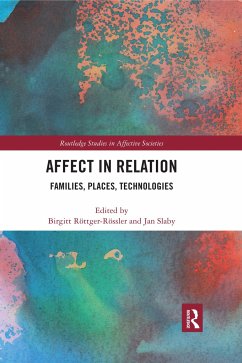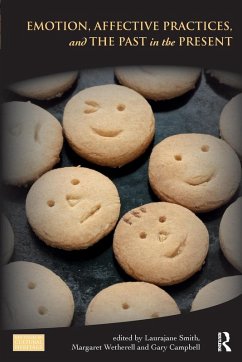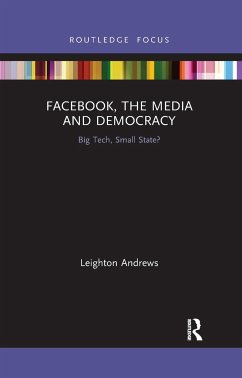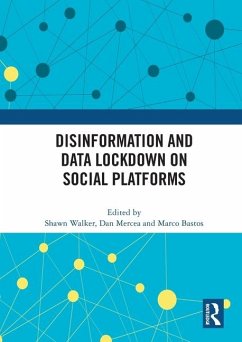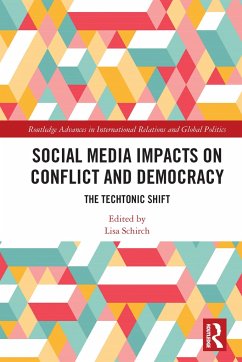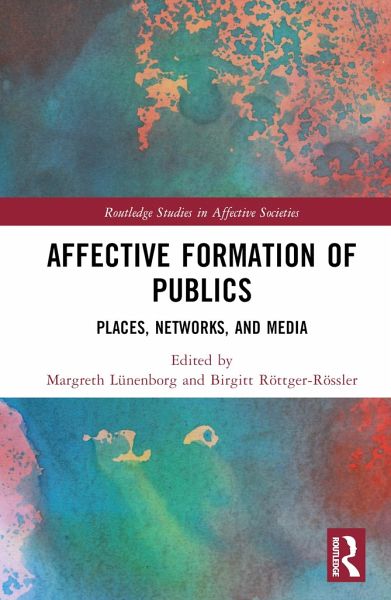
Affective Formation of Publics
Places, Networks, and Media
Herausgegeben: Lünenborg, Margreth; Röttger-Rössler, Birgitt
Versandkostenfrei!
Versandfertig in 6-10 Tagen
154,99 €
inkl. MwSt.

PAYBACK Punkte
77 °P sammeln!
This book offers an interdisciplinary analysis of current formations of publics that is informed by in-depth knowledge of affect and emotion theory.Using empirical case studies from contexts as diverse as India, Pakistan, Tanzania, and the Americas as well as Europe, the book challenges dichotomous distinctions between private and public. Instead, publics are understood as a relational structure that encompasses both people and their physical and mediatized environment. While each kind of public is affectively constituted, the intensity of its affective attunement varies considerably.The volum...
This book offers an interdisciplinary analysis of current formations of publics that is informed by in-depth knowledge of affect and emotion theory.
Using empirical case studies from contexts as diverse as India, Pakistan, Tanzania, and the Americas as well as Europe, the book challenges dichotomous distinctions between private and public. Instead, publics are understood as a relational structure that encompasses both people and their physical and mediatized environment. While each kind of public is affectively constituted, the intensity of its affective attunement varies considerably.
The volume is aimed at academic readers interested in understanding the dynamic and fluid forms of contemporary formation of publics-be it digital or face-to-face encounters as well as in the intersection of both forms. This includes researchers from media and communication studies, social anthropology, theatre or literary studies. It is aimed at advanced students of these disciplines who are interested in the unfolding of contemporary publics.
The Open Access version of this book, available at http://www.taylorfrancis.com, has been made available under a Creative Commons Attribution-Non Commercial-No Derivatives (CC BY-NC-ND) 4.0 license.
Using empirical case studies from contexts as diverse as India, Pakistan, Tanzania, and the Americas as well as Europe, the book challenges dichotomous distinctions between private and public. Instead, publics are understood as a relational structure that encompasses both people and their physical and mediatized environment. While each kind of public is affectively constituted, the intensity of its affective attunement varies considerably.
The volume is aimed at academic readers interested in understanding the dynamic and fluid forms of contemporary formation of publics-be it digital or face-to-face encounters as well as in the intersection of both forms. This includes researchers from media and communication studies, social anthropology, theatre or literary studies. It is aimed at advanced students of these disciplines who are interested in the unfolding of contemporary publics.
The Open Access version of this book, available at http://www.taylorfrancis.com, has been made available under a Creative Commons Attribution-Non Commercial-No Derivatives (CC BY-NC-ND) 4.0 license.





